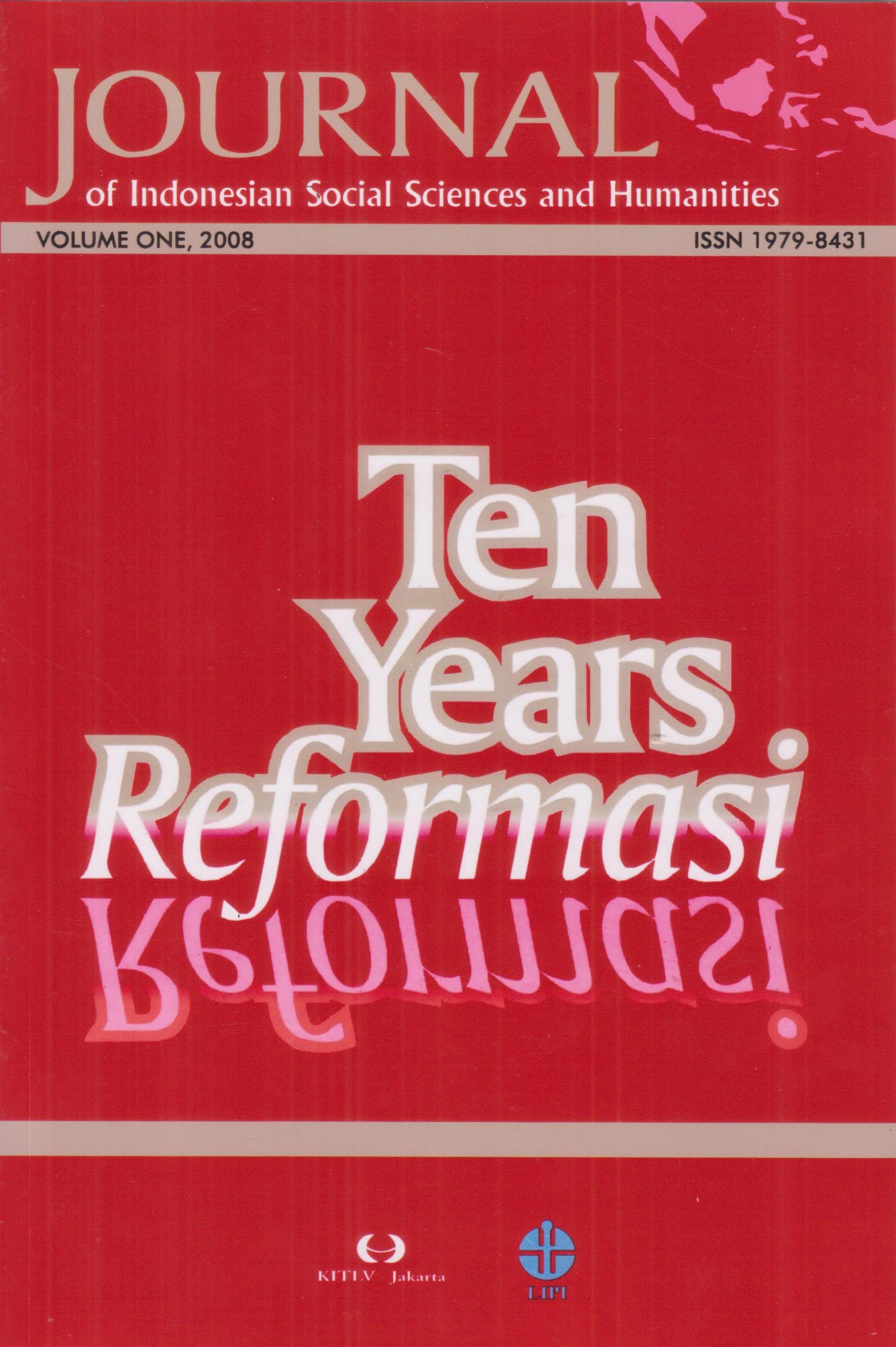Indonesia’s State Enterprises: from State Leadership to International Consensus
Abstract
The survival of state-owned enterprises and continued investment by the state was assisted by high rates of economic growth in Indonesia throughout the 1980s. The currency crisis in the region, which began in mid-1997, destroyed the expectation that rapid growth would continue. In this climate, the loss-making state companies were a serious financial burden, and privatisation has been promoted as a quick solution. It appears that the crisis reintroduced momentum for reform in the huge state-enterprise sector. In response to IMF pressure and its own fiscal difficulties, the government took several measures to reform the state sector. The economic crisis provided a catalyst because it forced the government to assess more seriously the value of state companies. There was an urgent need to sell state-owned assets to relieve the state budget when economic recovery slowed. This paper examines the efforts to reform the state sector during ten years of Reformasi, including the debate over privatisation and the emergence of strong resistance to reform. It appears that the crisis has strengthened the hand of reformers seeking to privatise the state sector. However, despite the logic of government efforts to reform inefficient state companies, there has been a battle with each step towards privatisation.
References
Bery, SK. 1990. ‘Economic Policy Reforms in Developing Countries: The Rule and Management of Political Factors’. World Development. Vol. 18. No. 8.
Bienen, Henry and Waterbury, John. 1989. ‘The Political Economy of Privatization in Developing Countries’. World Development. Vol. 17. No. 5: 617-632.
Christiansen, Robert E. 1989. ‘Introduction on Privatization’. World Development. Vol. 17. No. 5: 597-599.
De Walle, Nicolas Van. 1989. ‘Privatization in Developing Countries: A Review of the Issues’. World Development. Vol. 17. No. 5: 601-15.
Gupta, Asha. 2000. Beyond Privatization. London: Macmillan Press.
Haggard, S and Kaufman, R. 1988. The Politics of Stabilization and Structural Adjustment. Prepared for the NBER Project on Developing Country Debt. Cambridge, MA: NBER.
Heald, David. 1990. ‘The Relevance of Privatization to Developing Countries’. Public Administration and Development: 10.
Paauw, Douglas S. 1967. ‘From Colonial to Guided Economy’, in Ruth T. McVey (ed.). Indonesia. New Haven: Hraf Press.
Pangestu, Mari and Habir, Ahmad. 1989. ‘Trends and prospects in Privatization and Deregulation in Indonesia’. ASEAN Economic Bulletin, March: 224-241.
Ramanadham, VV. 1987. Studies in public Enterprise: From Evaluation to Privatization. London: F Cass.
Reformasi BUMN yang Berorientasi pada Penciptaan Nilai Melalui Pendekatan Kesisteman. 1999. Jakarta: Kantor Menteri Negara Pendayagunaan BUMN/Badan Pembina BUMN.
Starr. P. 1988. ‘The Meaning of Privatization’. Yale Law and Policy Reviews. Vol. 6: 1101-36.
Strategi, November 1999.
Sundaram, Jomo K (ed.). 1995. Privatizing Malaysia: Rents, Rhetoric, Realities. Boulder, Colorado: Westview Press.
Wortzel, Heidi Vernon and Wortzel, Lawrence H. 1989. ‘Privatization: Not the Only Answer.’. World Development. Vol. 17. No. 5: 633-641.
International Monetary Fund. 1998. Indonesia Memorandum of Economic and Financial Policies. (World Wide Web document, URL: http://www.imf.org/external/np/loi/011598.HTM. 15 January 1998).
Ministry of State Enterprises (World Wide Web document, URL: http://www.bumn.go.id/masterplan.html)
Asiaweek, 22 January 1999.
Far Eastern Economic Review, 4 March 1999 and 15 November 2001.
Gatra, 25 April 1998.
Kompas, 27 April 1998.
Reuters, 13 December 2001.
Tempo, 23-29 October 2001.
The Asia Wall Street Journal, 31 March 1998.
The Jakarta Post, 2 July 2005.
The Nikkei Weekly, 10 November 1997.
Van Zorge Report on Indonesia. Vol. III. No. 20, 20 November 2001.
Van Zorge Report on Indonesia. Vol. IV. No. 17, 8 October 2002.
World Development Report. World Bank. 1993.
Downloads
Published
Issue
Section
License

This work is licensed under a Creative Commons Attribution-NonCommercial-ShareAlike 4.0 International License.
Authors who publish with this journal agree to the following terms:
1. Authors retain copyright and grant the journal right of first publication with the work simultaneously licensed under an Attribution-ShareAlike 4.0 International (CC BY-SA 4.0) license. This license allows others to remix, adapt, and build upon the work, as long as they credit the author and license their new creations under the same terms.
2. Authors may enter into separate, additional contractual arrangements for the non-exclusive distribution of the journal’s published version of the work (e.g., posting it to an institutional repository or including it in a book), provided there is an acknowledgment of its initial publication in this journal.
3. Authors are permitted and encouraged to post their work online (e.g., in institutional repositories or on their personal website) prior to and during the submission process, as this can lead to productive exchanges and increase citations of the published work (See The Effect of Open Access ).


















